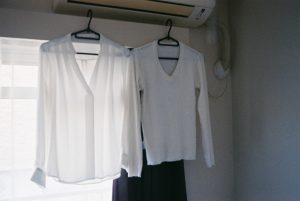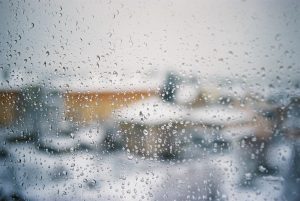
In October 2024, my Twitter (X) timeline was filled with Han Kang. The 2024 Nobel Prize in Literature had been awarded to a South Korean female writer — the first Asian woman to receive the honor. I had considered myself somewhat well-read regarding Japanese literary fiction and renowned foreign authors, yet I felt ashamed of my ignorance of Korean literature. As I scrolled through the news site, my fingers instinctively opened a new Chrome window and navigated to Amazon, where I immediately purchased The White Book.
At the time I read this book, I happened to be working alongside a Korean woman. I was in general affairs, seated two desks away from her in accounting. “A Korean woman just won the Nobel Prize in Literature,” I mentioned. “Han Kang, right?” she replied. “I know of her, but I’m not really interested. I’m not much of a reader.” Her fluent Japanese, her bluntness tinged with shyness — I found her clear voice just as endearing as those traits. Even now, whenever I read The White Book, I hear her voice in my mind. In her voice, the one that spoke her native Korean like a gentle song.

White. White. White. What comes to mind from that color likely differs from person to person. For me, it’s snow—perhaps a little too deeply tied to where I come from, but I hope you’ll forgive me for that.
“With a paintbrush in one hand and a can of paint in the other, I bent at the waist and gazed absentmindedly at the snowflakes slowly drifting down, like hundreds of feathers scattered in the air, each falling with its rhythm.”
Yes, truly—when faced with snow that falls in heavy, quiet waves, there is nothing one can do. I can’t help but think that the first person who ever named the color “white” did so while gazing at snow.
If not snow, then what else is white? Paper. Rice. Eggs. Feathers. Clouds. Light—The more I go on, the more abstract it becomes. For a photographer, light is, without question, white. And then there’s the soul. The soul is part of the light, too. The chapter titles in the book overlap heavily with these things I’ve just listed. Come to think of it, although it depends on one’s religion, in Japan, when a person dies, the deceased are most often dressed in white funeral garments. For me, white is an untouchable, almost sacred color—so mystical it inspires awe and fear. In the end, this book served as a kind of bridge between me and my fear of white. As if gently whispering, “It’s okay to be afraid.”

Whenever someone somewhere achieves something extraordinary, and people emphasize that person’s gender, especially when it matches their own, and celebrate it for that reason, I feel a small sting in my chest. There are countless moments in life when I want to shout, with all my might, “This person is amazing because they’ve transcended all barriers—gender, nationality, everything!” And yet, the broader the subject, the more spears come flying. Even in an era like ours, where we know we shouldn’t divide everything by gender, I still want to ask. Or perhaps more accurately, I want to know. What, I wonder, did men take away from reading her book? What did they think? What did they feel?
“When I looked through your eyes, everything seemed different. Walking with your body, my steps became something else entirely. I wanted to show you something beautiful—before cruelty, before sorrow, before despair, before filth, before pain. To you alone, something beautiful. But it didn’t go the way I hoped.”
—I didn’t realize I was crying until some time had passed. Now and then, when I’m reading a book, that happens. Surprised by the warmth of my tears, I come back to myself, wipe my nose, and think: Am I crying because I’m a woman? Because I’m East Asian? Because I was born and raised in Japan’s snow country? Because I’m a daughter to my mother? Because I was born with a body capable of becoming a mother? Does everyone who reads this book end up like this? Fleeting hypotheses rise and vanish without settling.
Years ago, a man I respected once told me, “It’s frustrating how beautifully you cry.” I suddenly remembered that. At the time, I had no idea what he meant and just laughed it off. Looking back, maybe it wasn’t that I cried beautifully—just quietly. I don’t wipe away my tears. It’s too much trouble, and I hate how my eyes swell. So I let them fall. It’s not an act. I’m not doing it consciously. When I cry, it’s not necessarily because I’m sad or angry. For me, crying is what happens when my emotions overflow—when the vessel is full and something spills out.
…Ah, I see. So this is the answer. As I kept reading, my heart gradually filled with feelings that had no name. And then they spilled over. Of course, the brilliance of the novelist’s expression and the translator’s artistry form the foundation of this experience. But bringing that up feels almost tasteless—it misses the point. It’s because of works like this that, no matter how deep my despair becomes, I’ve managed—so far—to keep living without ending my life by my hand.